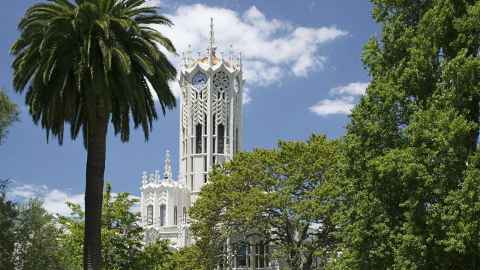University of Auckland retains No 1 spot in international sustainability rankings
The global ranking was launched in 2019 to measure the broader impact of universities. It highlights the work being delivered by universities within their communities, demonstrating the differences they can make to the world against measures such as providing inclusive and equitable quality education, achieving gender equality, and championing environmental sustainability. Universities are assessed against each of the 17 SDGs, which were adopted by the UN in 2015 to provide a framework for developing the world in a sustainable way.
University of Auckland Vice-Chancellor, Professor Dawn Freshwater said that she was very proud of the result, which she says reflects the world-class outcomes achieved by staff of the University of Auckland.
“The Impact Rankings’ focus on sustainability has become even more relevant as we consider what a post-Covid world might look like, and how this enforced ‘pause’ might be used as an opportunity to reshape economies in more sustainable ways,” she said.
“There is a growing call for countries to use this crisis to radically rethink economic and social models. This includes concerns about increasing reliance on fragile global supply chains, dependence on single countries for essential manufacturing, precarious health systems, and placing too much emphasis on economic growth that puts unsustainable pressure on the environment.
“Against this backdrop, the focus of the SDGs on ‘sustainability’ in its broadest sense has become even more important and relevant. The Impact Rankings demonstrate how universities like Auckland can play a key role in thought leadership, in germane research, and in sustainable operations,” she said.
“In the post-Covid world we will be building on this in collaboration with our many stakeholders and communities . The ranking positions us and New Zealand very positively for the strengths and abilities that we offer alongside our partners.”
The Impact Rankings demonstrate how universities like Auckland can play a key role in thought leadership, in germane research, and in sustainable operations.
The University of Auckland was first among the 850 institutions from 89 countries that participated and was ranked in the top 25% for each of the Goals with which it engaged. Its top four areas were Goal 14, Life Below Water (2nd), Goal 15, Life on Land (3rd=), Goal 3, Good Health and Wellbeing (4th), and Goal 17 (3rd). This last – Partnership for the Goals – is the only mandatory qualifying SDG; among other things, the University of Auckland is an Institutional member of the UN Sustainable Development Solutions Network and the UN Programme for Human Settlements.

With high rankings in areas that included marine sustainability and land protection, Professor Freshwater said that that these had been a particular focus for the University of Auckland for a considerable time now, quite independent of the Sustainable Development Goals.
“Due to our location and the priorities resulting from our role as a research-led university, these have been areas where we have a natural emphasis. Our physical proximity to the oceans and the land in Aotearoa New Zealand means we often lead the world in unique marine and land-based environmental research projects.
“In these and other areas the University recognises the importance and value of kaitiakitanga and mātauranga Māori in shaping a unique and distinctive approach to sustainability in this country,” she said.

